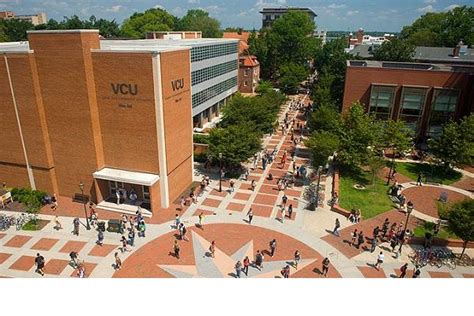Introduction

Virginia Commonwealth University’s (VCU) Master of Social Work (MSW) program is a highly reputable and well-established program that has been preparing social work professionals for over 50 years. With its strong academic foundation, diverse faculty, and commitment to field experience, the VCU MSW program offers students a transformative educational experience that empowers them to make a positive impact in the lives of others. However, the cost of obtaining an MSW degree is a significant consideration for many prospective students. This comprehensive breakdown will provide you with all the necessary information about the VCU MSW program cost, including tuition, fees, and potential financial assistance options.
Tuition and Fees
The VCU MSW program offers three different tuition rates based on residency status:
- In-State Tuition: $18,714 per academic year
- Out-of-State Tuition: $37,428 per academic year
- International Student Tuition: $43,600 per academic year
In addition to tuition, students are also responsible for mandatory fees, which cover services such as student health insurance, technology access, and recreation and wellness programs. The estimated mandatory fees for the 2022-2023 academic year are:
- In-State Fees: $2,368 per academic year
- Out-of-State Fees: $2,368 per academic year
- International Student Fees: $2,716 per academic year
Total Program Cost
Based on the current tuition and fee rates, the total cost of the VCU MSW program varies depending on residency status and program length. Here is a breakdown of the estimated total program cost for each type of student:
| Student Type | Program Length | Total Cost |
|---|---|---|
| In-State | 2 years | $41,860 |
| Out-of-State | 2 years | $83,720 |
| International Student | 2 years | $97,220 |
Financial Assistance
VCU offers a variety of financial assistance options to help students cover the cost of their MSW education, including:
- Scholarships: VCU awards a number of scholarships to MSW students based on academic merit, financial need, or other criteria.
- Graduate Assistantships: Graduate assistantships provide students with a stipend and tuition remission in exchange for working part-time on research or teaching projects.
- Student Loans: VCU offers low-interest student loans to qualified students through the Federal Direct Loan Program.
- Military Benefits: Veterans and active-duty military personnel may be eligible for financial assistance through the Veterans Affairs (VA) educational benefits program.
Return on Investment
While the cost of an MSW degree is a significant investment, it is important to consider the potential return on investment (ROI). According to the Bureau of Labor Statistics (BLS), the median annual salary for social workers was $51,760 in May 2021. With a master’s degree in social work, graduates can expect to earn significantly more than those with only a bachelor’s degree. Additionally, social workers with advanced degrees are more likely to qualify for leadership positions and earn higher salaries.
Conclusion
The VCU MSW program cost is a significant investment, but it can also be a transformative one. With its strong academic foundation, diverse faculty, and commitment to field experience, the VCU MSW program prepares students for a rewarding career in social work. By carefully considering the program cost and exploring financial assistance options, prospective students can make an informed decision about whether the VCU MSW program is the right investment for their future.
Frequently Asked Questions (FAQs)
- What is the application fee for the VCU MSW program?
-
$60
-
Is there a GRE requirement for the VCU MSW program?
-
No
-
What are the admission requirements for the VCU MSW program?
-
A bachelor’s degree from an accredited institution with a minimum GPA of 3.0, a personal statement, letters of recommendation, and a resume.
-
What is the average class size for the VCU MSW program?
-
20-25 students
-
What are the career opportunities for graduates of the VCU MSW program?
-
Graduates of the VCU MSW program are employed in a variety of settings, including schools, hospitals, mental health clinics, and social service agencies.
-
What is the job outlook for social workers?
-
The job outlook for social workers is expected to grow by 12% from 2020 to 2030, much faster than the average for all occupations.
-
What is the starting salary for social workers with a master’s degree?
-
The starting salary for social workers with a master’s degree can vary depending on factors such as experience, location, and job setting. However, according to the BLS, the median annual salary for social workers with a master’s degree was $60,880 in May 2021.
-
What is the difference between the MSW and PhD in Social Work?
- A Master of Social Work (MSW) is a professional degree that prepares students for direct practice in the field of social work. A Doctor of Philosophy (PhD) in Social Work is a research degree that prepares students for careers in research and academia
